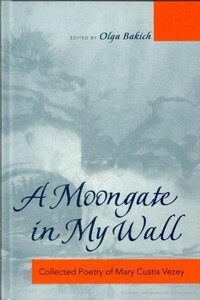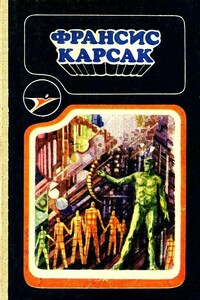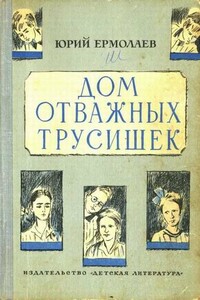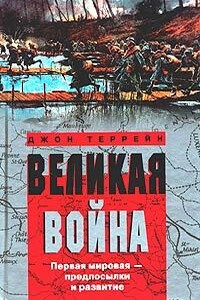Mary Custis Vezey is a little-known poet of the Russian post-1917 diaspora. She is unusual among emigre writers for two reasons: first, that she spent most of her life in China or the United States, and so did not consider herself an emigre; and second, that she wrote in both Russian and English (indeed her first book contains poems in both languages). She comes from the Chinese branch of the Russian diaspora; its work is much less well-known than those of the European and North American emigre communities.
Mary Vezey published three books of lyric poetry in her lifetime, and many individual poems in a variety of journals and occasional collections. She was also a translator into both Russian and English. Most of her poems are less than twenty lines long, and only a few run to more than fifty. Like many Russian poets who grew up in the 1920s, she chose to follow the more conservative styles of Blok (1880–1921), Gumilev (1886–1921), Akhmatova (1889–1966), and Esenin (1895–1925) — indeed she translated poems by the first three of these — as representatives of a culture that seemed under threat from the Revolution. This allegiance takes the form of themes (in particular, nostalgia and escapism), imagery, rhymes and rhythmic preferences. In her first collections (1929 and 1936) her own individuality is often obscured by these more powerful voices, but her work of the 1950-1980s is more independent. She displays a great interest in technique; several poems exhibit a new rhyming virtuosity, while quite a few are unrhymed, which was unusual in the tradition which she had previously followed. An unexpected development of this period is the attempt to work in the conventions of classical Chinese poetry, which she also translated in these years. In her translations, she shows a widening of interests, not just in the favourite poets of her youth, but also in such difficult poets as Marina Tsvetaeva, of whom she produced some of the best translations in English known to me.
Dr Bakich has performed a valuable service in assembling this collection from a host of rare and almost inaccessible literary journals. It will introduce readers to a new voice in Russian poetry, quiet, perhaps, but once one has caught its tone, individual and memorable. Mary Vezey may be a minor poet, but she is a real poet, none the less.
Boris Thomson
Professor Emeritus
University of Toronto
Ольга Бакич. Введение(на англ. языке)
This book will bring belated recognition and appreciation to a bilingual poet, Mary Custis Vezey (1904–1994), who has left us a fine heritage of published and unpublished works.
Born in New York of a Russian mother and an American father, she lived in Russia, China, and the USA. Her three collections of predominantly Russian poetry came out in the cities of Russian emigration — Harbin (1929), Shanghai (1936), and San Francisco (1973) — and some of her poems appeared in Russian emigre periodicals. Her Russian poetry belongs to the splendid literature created by the first-wave emigres, forced to leave Russia after the 1917 Revolution and the Civil War. In the Russian diaspora in China, her contemporaries included lustina Kruzenshtern-Peterets (19031983), Marianna Kolosova (1903–1964), Nikolai Peterets (1907–1944), Olga Skopichenko (1908–1997), Natalia Reznikova (1908–1998?), Nikolai Svetlov (1908–1970?) and Sergei Sergin (1908–1934). In Europe and the USA, she belongs to the generation of Nina Berberova (1901–1993), Vladimir Smolenskii (1901–1961), Boris Poplavskii (1903–1935), Sofia Pregel' (1904–1973), Gertruda Vakar (1904–1973), Jurii Ivask (1907–1986), Jurii Mandel'shtam (1907–1943), Lazar' Kel'berin (1907–1989), Anatolii Shteiger (1907–1944), Lidila Alekseeva (1908–1989), and Igor' Chinnov (1909–1996).
At the same time, Mary Vezey was an American poet: both the Russian and the English language were native to her. All her life she felt that she had “two homes»[1].I In 1990, she wrote: "In Russia my poems are now published as emigre poetry, but I am not an Emigre at all. Although I write in Russian, I am an eleventh-generation American! Recently, a wonderful (though terrifying) series 'The Civil War' was shown on television, and I felt it very keenly. I saw several of my relatives (southerners) there. When my schoolmates in a Russian school had asked me who I was, a Russian or an American, I had proudly answered that I was hundred per cent Russian and hundred per cent American»[2]. She also deeply loved China, the home of her youth; the images of these three countries intertwine in a dreamy surrealist image in a late, unfinished poem (poem 486)[3]. "Even if I'll never sail / in my tiny boat, / neither in dreams, nor awake, / on the Amazon, / yet I will always, / as long as I live,/keep the memory of the Neva River/on a Chinese junk-boat."
Mary Custis Vezey, or Mariia Genrikhovna Vizi (as she was known in Russian), was born on 17 January 1904 in New York. Her father, Henry Custis Vezey (1873–1939) was an American. His ancestors moved from England to the USA at the beginning of the 17th century and became related to the American family Custis, to the first American president George Washington, and to General Lee, the leader of the Confederates in the American Civil War. As a young man, Henry Custis Vezey went to Europe, studied languages, and worked in Paris. At the end of the 19th or in the early 20th century, he worked at the American Embassy in St. Petersburg, becoming a Vice-Consul in 1914. During the First World War, he edited and published an English-language newspaper Russian Daily News, and later a bulletin Russkih News Letter (Translations from Russian Newspapers)




